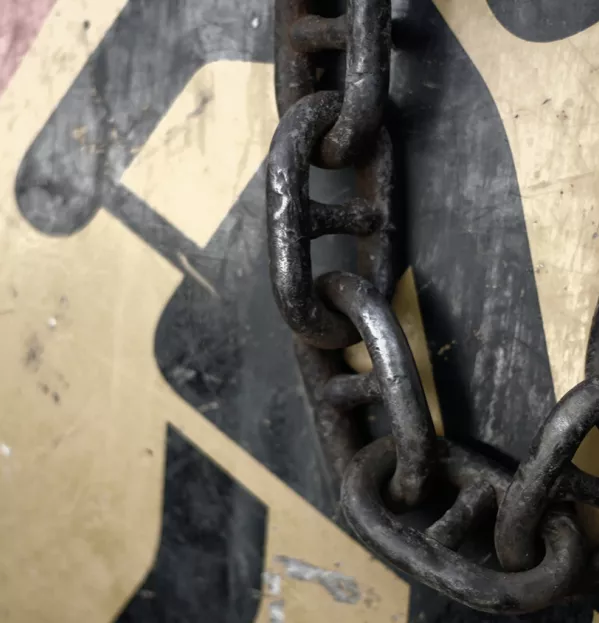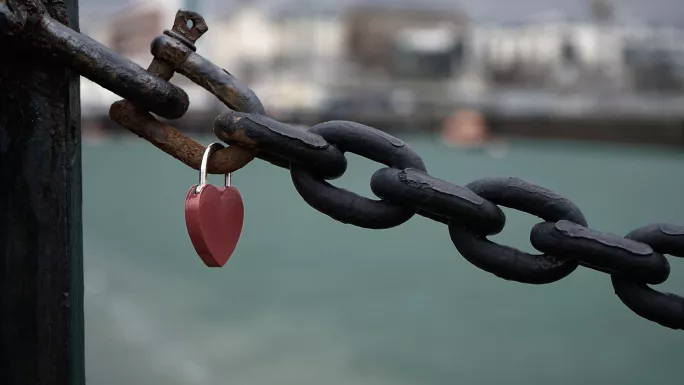Victims of slavery throw off the shackles of their past

Colleges and training providers are no strangers to supporting vulnerable students who have to contend with difficult personal circumstances. But it’s difficult to think of a group of learners more marginalised and oppressed than victims of modern slavery.
This is a barbaric and complex crime, encompassing human trafficking and multiple forms of sexual exploitation, domestic servitude and forced labour. It is as lucrative as it is disturbing, with annual profits across the globe estimated at $36 billion.
In 2015, the Modern Slavery Act was put in place by Theresa May, then home secretary, making Britain the first country in the world to implement legislation to combat this crime. Though the act included tougher sentences and increased support for victims, networks have become increasingly sophisticated, prompting a review of the legislation to keep up with ever-evolving criminal practice.
For those who have suffered at the hands of human slavery, integrating into society, not to mention engaging in education, can be a daunting prospect.
And their complex legal status often creates additional barriers to participation, with complex rules on eligibility. For those going through referral processes, there are often stringent restrictions. And those not in receipt of asylum support are often required to pay fees for English for speakers of other languages (Esol) courses.
But moves are afoot to reach out to them. Northern College in Barnsley, a residential college specialising in adult education, has created the first course designed specifically with modern slavery victims in mind.

Research into the most basic needs of slavery victims by the Salvation Army, published in 2013, identified “education/training” in general, and Esol in particular, among the requirements identified in initial assessments by social workers.
Euan Fraser, coordinator for the Human Trafficking Foundation’s advisory forum, believes that education can play a “hugely important role” in helping survivors recover from exploitation and abuse, “helping them to regain their confidence and agency, ensuring that they have the skills required to gain legitimate and dignified employment which is essential to regaining independence and avoid falling back into exploitation”.
This is where Northern College’s inaugural 10-week “free thinking” programme, recently completed by 13 students aged from 22 to 66, comes in. The course comprises history, geography, IT and creative storytelling, as well as essential elements on British culture and employment rights, to ensure that the learners won’t be exploited in future.
While many people assume victims are targeted due to vulnerabilities implied by limited access to education, there is “no one size fits all” profile of survivors, explains programme organiser Jane Williamson.
“At least three students on the course had only primary school education in their own countries, but another two had degrees,” she says. “The one thing that everyone has in common is ambition. They all came [to the UK] with the ambition of working and making money. When they got here, that’s not what happened.”
The aim of the course is to build confidence and resilience rather than teaching English, though everyone’s spoken language has improved throughout the course.
The programme was designed in collaboration with agencies and experts in the field. Most of the students enrol during their time in the national referral mechanism (NRM), a process whereby survivors are offered a period of recovery and reflection (recently increased from 45 to 90 days) regardless of their immigration status. During this time, their case is assessed and information gathered in order for authorities to make a conclusive decision regarding their status. However there remains widespread confusion surrounding the liberated victims’ eligibility for accessing education.
“There are some asylum seekers who are being told point blank that they’re not allowed to access education,” Williamson explains. “The guidelines are very unclear about what type of study is allowed.”
Reflection period
This is a common problem, according to Jakub Sobik, communications manager at charity Anti-Slavery International. And individuals are by no means guaranteed to be given an official status recognising them as being a victim of trafficking at all. Around three-quarters of those from outside the European Union miss out, says Sobik - meaning that, in all likelihood, they would not be allowed to attend college at all. And once the NRM “reflection period” ends, support connected to trafficking comes to an abrupt end, he adds. “Not many people have the energy and means to go to school when they struggle to find a roof over their heads and, in cases of unregulated immigrations status, can’t work and can’t access benefits.”
Even for those who make it into the classroom, traumatic experiences throw up unexpected issues for students and teachers alike.
“I had one survivor that I was working with, who had managed to access a college course against all the odds,” explains Rachel Cox*, a survivors’ support worker with the charity Unseen. “But the teacher was in the habit of setting a lot of quick-fire verbal tests. The survivor found the experience similar to being interrogated, which triggered memories of their exploitation and a panic attack. In the end they gave up the course, feeling unable to cope.”
Experiencing feelings of trauma and shame when in the classroom are common, says Carole Murphy, deputy director of the Centre for the Study of Modern Slavery at St Mary’s University, Twickenham.
“A simple ice-breaking exercise such as ‘Talk about your family’ can trigger a trauma response for some victims. Shame can be experienced about their lack of prior education, especially for older learners, making it difficult for them to feel a sense of belonging in an educational setting. The summer break can be a difficult time, as the courses provide a positive focus for victims away from their trafficking experiences.”
The nature of the programme also brings challenges for Northern College: it funded the course from its own resources. Bob Harrison, the college’s chair of governors, says it was simply an extension of the work it already does with “people on the fringes”.
“The main driver for us is whether a group needs help and support, and if the project fits with college values. If it’s a ‘yes’, then we should do it. Where’s the money coming from? We’ll work that out later.”
But while the college’s approach may be enlightened, the support available elsewhere is lacking, says Sobik. “We could welcome a programme like this being integrated to a comprehensive system that supports all victims of modern slavery long-term, allowing them to rebuild their lives. But the reality is that such a system doesn’t exist.”
*Not her real name
You need a Tes subscription to read this article
Subscribe now to read this article and get other subscriber-only content:
- Unlimited access to all Tes magazine content
- Exclusive subscriber-only stories
- Award-winning email newsletters
Already a subscriber? Log in
You need a subscription to read this article
Subscribe now to read this article and get other subscriber-only content, including:
- Unlimited access to all Tes magazine content
- Exclusive subscriber-only stories
- Award-winning email newsletters